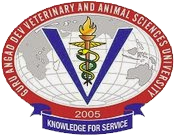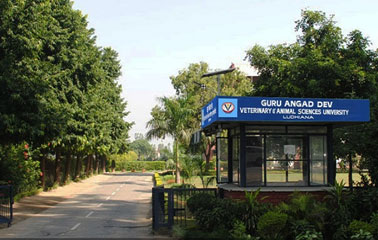

Effective and strategic vaccination programme need to be followed to have healthy and productive livestock unit along with the prevention and control of diseases. These views were expressed by Dr C K Singh, Incharge, Animal Disease Research Centre. He revealed that commonly most of the livestock rearers and entrepreneurs associated with livestock farming are ignorant about the proper immunization. A vaccine is a biological preparation that improves immunity to a particular disease.
Important infectious diseases of cattle and buffaloes which require vaccination include Foot and Mouth Disease (FMD), Hemorrhagic Septicemia (HS), Brucellosis, Black Quarter (BQ), Theileriosis and Rabies. The age of first dose of vaccine against FMD is four months and above, booster dose is given after one month and subsequently repeated after six months. In case of HS first dose is given at six months or above and thereafter repeat after every six months. Brucellosis vaccine is given at the age of 4-8 months in female calves only, once in life time. Vaccination for BQ is given at six months or above and thereafter repeat yearly. In case of Theileriosis, it is given at three months of age followed repetition after every three years in animals that are maintained in tick free condition. Animals that are constantly exposed to tick bites, the immunity is constantly boosted and hence the immunity is conferred for life time. For rabies the first dose is given at 3 months & above. Revaccination is done after three years, annual vaccination is recommended in endemic areas. Post bite therapy for Rabies includes first dose immediately after suspected bite, booster on 4th day and subsequent doses on 7, 14, 28 and 90(optional) days after first dose. In the present season (May-June), the dairy farmers should get their animals vaccinated for Hemorrhagic Septicemia and prevent huge economic losses which occur due to the disease.
Dr. Gursimran Filia of the same centre discussed precautions to be taken during vaccination. She told that all vaccines should be stored correctly before use.Where similar vaccines are kept with different expiry dates ensure those with the shortest expiry time are at the front.Only vaccinate fit and healthy animals. Do not vaccinate stressed, exhausted,immunosuppressed and animals in very late pregnancy. When injecting vaccines ensure that the site of injection is clean and dry. If different vaccines for different diseases need to be given to the same animal, there must be an adequate interval in between each vaccine to ensure that they all produce a satisfactory immune response. Where the vaccine regime involves giving more than one dose, ensure that the second dose is given at the required interval. Maintain proper record of vaccination being done at a dairy farm
